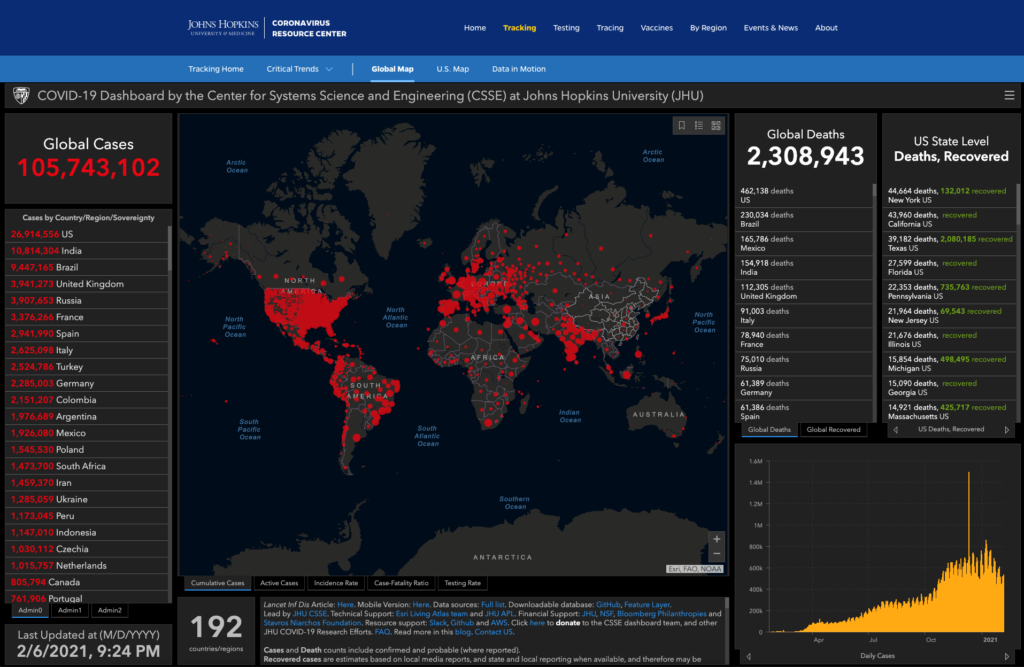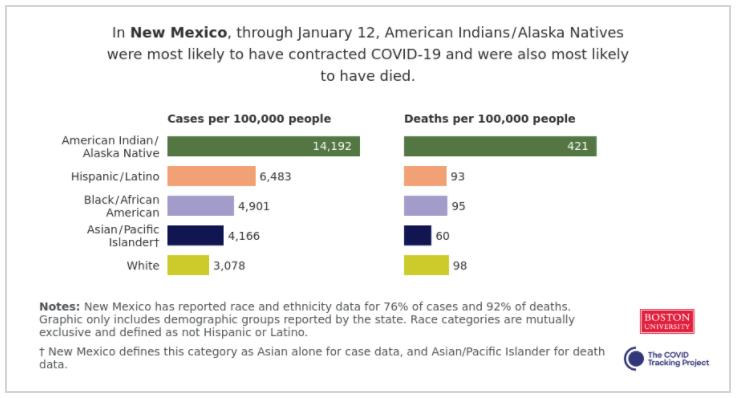Thinkalong » Blog
As science teacher educators committed to making science relevant to students’ lives and consequential in the pursuit of justice, we highlight how science intersects with society, especially how science is represented and made accessible through the media.
A most prominent case of how science and society intersect is currently affecting our daily lives – systemic racism in the US has resulted in disproportionate numbers of COVID-19 cases and deaths among Black, Latino, and Native American populations. COVID-19 and other global societal issues like climate change, require individual, communal, and societal action by informed citizenry to abolish systemic racism, protect vulnerable people, and reverse the role humans play in planetary destruction.
While the Next Generation Science Standards offer promise for making science teaching and learning more relevant to students by explaining natural phenomena and solving problems, they are not oriented toward addressing societally pressing issues or making justice-centered decisions. Additionally, the standards don’t point to the role media literacy can play in helping students address societally pressing issues or make justice-centered decisions.
Science teaching and learning play a pivotal role in addressing pressing issues and the media provide up-to-date, easily-accessible information. We recognize that, “[w]ithout more explicit connections between classroom teaching and learning to societally pressing phenomenon and challenges, our next generation of leaders and citizens will . . . struggle to draw on science as an essential tool for making informed decisions of consequence” (Verma et al., 2020, p. 5).
To help science educators teach science that intersects with society and addresses systemic racism, we proposed a teaching framework (Lee & Campbell, 2020) and developed teaching materials to engage students in addressing societally pressing phenomena and challenges (Campbell & Lee, 2020; Campbell et al., in preparation). Below, we describe our framework along with examples of how students may experience our resources in science classrooms.
Engaging Students in Societally Pressing Phenomena and Challenges Through Data Science, Computer Science, and STEM Convergence
In our most recent work in the context of the COVID-19 pandemic, we focus on how data science made available through the media play critical roles in explaining and designing solutions to the pandemic. Since the breakout of the pandemic, an enormous amount of data has been made available through the media to explain the pandemic. Computer models of social distancing and the reopening of society have also become available through the media to design solutions to the pandemic. Moreover, we recognize how reasoning about societal problems, like COVID-19, necessitates the integration of knowledge and practices from multiple STEM disciplines, which is referred to as STEM convergence.
As an example of STEM convergence, to examine how our society can flatten the curve of COVID-19 cases, we can combine data science like the Johns Hopkins Coronavirus Resource Center (shown below) with computer science simulations, like this one at the Washington Post.

From COVID-19 Dashboard by the Center for Systems Science Engineering (CSSE) at Johns Hopkins University (JHU), 2021. Copyright 2021 by Johns Hopkins University & Medicine.
To address societally pressing phenomena and challenges, multidisciplinary convergence is necessary. In terms of COVID-19, we gain understanding of how a virus originates, infects, and spreads from life science; how viral spread can occur exponentially from mathematics; and how it can be mitigated by using computer simulations to explore different scenarios from computer science. What matters most is how a diversity of disciplinary perspectives are leveraged to address the multifaceted challenges we face during the pandemic.
Engaging Students in Societally Pressing Phenomena and Challenges as a Lever to Make Justice-Centered Decisions
Societally pressing phenomena and challenges, like the COVID-19 pandemic and climate change, offer promise as a lever to make justice-centered decisions. COVID-19 has accentuated how systemic racism has resulted in disproportionate numbers of cases and deaths among Black, Latino, and Native American populations. We design teaching materials that draw on COVID-19 dashboards and resources to engage students with real-world and real-time data that reveal such disparities (Campbell et al., in preparation). For example, in middle school science, students answer the following question:
Can we identify how COVID-19 is disproportionately impacting specific racial and ethnic groups in the US?
First, students examine the disproportionate impact of COVID-19 on specific racial and ethnic groups using the data from New Mexico and other states.

From The COVID Tracking Project at The Atlantic, 2021. Copyright 2021 by The Atlantic Monthly Group.
Then, students read the following news media articles, which reveal the underlying causes of the increased cases and deaths of Black, Latino, and Native American populations.
- The Fullest Look Yet at the Racial Inequity of Coronavirus
- How COVID-19 is highlighting Racial Disparities in Americans’ Health
- Many Latinos Couldn’t Stay Home. Now Virus Cases Are Soaring in Their Communities.
- What Do Coronavirus Racial Disparities Look Like State By State?
Through reading the media articles, students discover that Black, Latino, and Native Americans represent the majority of essential workers who cannot work remotely from home, often rely on public transportation, and tend to live in small apartments or multi-generational homes.
Finally, after students explain some of the causes for the disproportionate impact of COVID-19, they make proposals for addressing systemic racism. A potential proposal involves solutions to improve the sanitation of public transportation systems for essential workers commuting to work.
Converging STEM Disciplines for a More Equitable Society
Engaging students in societally pressing phenomena and challenges – such as the COVID-19 pandemic and climate change – through the media extends the Next Generation Science Standards in two intersecting ways.
First, explaining these phenomena and designing solutions to these challenges require convergence of multiple STEM disciplines. Second, these phenomena and challenges require making justice-centered decisions.
Dr. Kamau Bobb and even students recognize STEM as a pathway for shaping a more equitable society, while they are also better prepared to take on current and future pressing challenges in better informed and more empathetic and humane ways.
_____
References
Campbell, T., & Lee, O. (2020). How can we make informed decisions to keep ourselves and our communities safe during the COVID-19 pandemic? National Science Teaching Association Daily Do. https://www.nsta.org/lesson-plan/how-can-we-make-informed-decisions-keep-ourselves-and-our-communities-safe-during-covid
Campbell, T., Russel, J., Murray, E., & Lee, O. (in preparation). Are there differences in the U.S. in how different racial and ethnic groups are affected by the COVID-19 Pandemic? If so, why are there differences and what should we do about the disproportionate impact of the pandemic [Manuscript in preparation]? Neag School of Education, University of Connecticut.
Johns Hopkins University & Medicine. (2021). COVID-19 Dashboard by the Center for Systems Science and Engineering (CSSE) at Johns Hopkins University (JHU). https://coronavirus.jhu.edu/map.html
Lee, O., & Campbell, T. (2020). What science and STEM teachers can learn from COVID-19: Harnessing data science and computer science through the convergence of multiple STEM subjects. Journal of Science Teacher Education, 31(8), 932-944. https://doi.org/10.1080/1046560X.2020.1814980
Verma, G., Campbell, T., Melville, W., & Park, B. (2020). Science teacher education in the times of the COVID-19 pandemic. Journal of Science Teacher Education, 31(5), 483-490. doi: 10.1080/1046560X.2020.1771514
_____
Todd Campbell is the department head of Curriculum and Instruction and a professor of science education in the Neag School of Education at the University of Connecticut. His research focuses on cultivating imaginative and equitable representations of STEM. In formal science learning environments, he works with pre-service and in-service science teachers and leaders to collaboratively promote students’ use of modeling as an anchoring epistemic practice in making sense of phenomena. In informal science learning environments, he engages in the iterative design of informal learning spaces and equity focused STEM identity.
modelbasedinquiry.com
Okhee Lee is a professor in the Steinhardt School of Culture, Education, and Human Development at New York University. She was a member of the Next Generation Science Standards (NGSS) writing team and served as leader for the NGSS Diversity and Equity Team. She was also a member of the Steering Committee for the Understanding Language Initiative at Stanford University. She is currently leading collaborative research to develop instructional materials aligned with the NGSS in order to promote science learning and language learning of elementary students, including English learners. She is also leading collaborative research to integrate computational thinking and modeling in NGSS-aligned instructional materials.
https://www.okheelee.com/
https://www.nyusail.org/
_____
Interested in talking about societally pressing STEM phenomena with your learners? Check out our topics on climate change, COVID-19, gene editing, and more.
